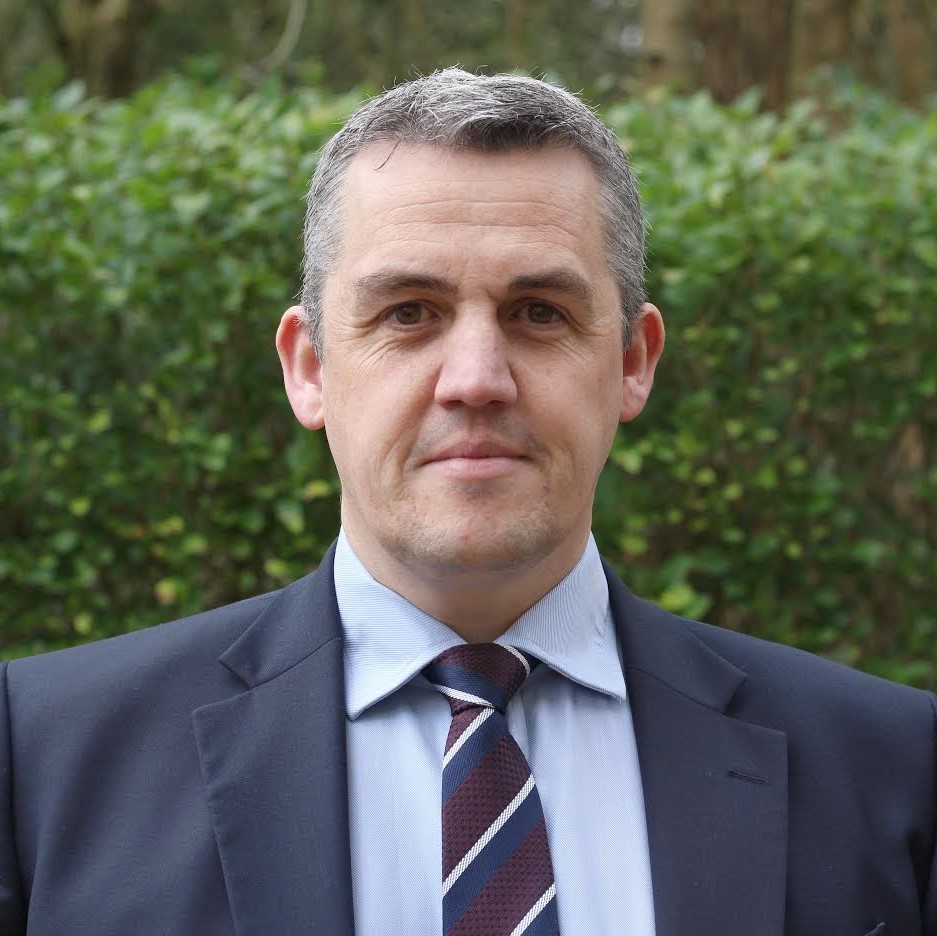Why the public and private sector need to join forces
Creating positive change to last

The UK government has officially announced its decade-long project to level up Britain, revealing a range of new policies to improve regional opportunities across the board.
Martin McFadyen, Virgin Media Business’ Head of Public Sector & John Steward, GMCA’s City Region Digital Infrastructure Policy Lead.
And investment in digital infrastructure has a vital role to play in these plans, supporting those at risk of digital exclusion, creating local jobs and helping to tackle homelessness.
If we’re to create lasting positive change for the people who live in our local communities then the public and private sector need to work together to draw on one another’s knowledge and experience.
The Greater Manchester Combined Authority’s (GMCA) recent Local Full Fibre Networks Programme (LFFN) is one example of such a partnership. In 2020, the GMCA appointed Virgin Media O2 Business to deliver up to 2,700km of new fibre optic broadband, connecting more than 1,500 public sites across the city-region – making this multi-million-pound programme the biggest government full-fibre investment in the UK.
In its first year alone, the partnership delivered economic benefits worth £11.8m through jobs created and opportunities made for digitally disadvantaged people across Greater Manchester.
But this is only one step on a long journey for the UK. Recent Ofcom figures show that more than 1.5 million homes in the UK still do not have internet – an alarming figure, and one that demands action. But how can the private and public sectors learn from Greater Manchester’s example to give local communities the connectivity they deserve?
Things can (and will) change
The pandemic showed local councils how the ability to adapt quickly is crucial to ensuring the communities they serve are not left in the dark.
Are you a pro? Subscribe to our newsletter
Sign up to the TechRadar Pro newsletter to get all the top news, opinion, features and guidance your business needs to succeed!
In March 2020, the GMCA set up the Greater Manchester Tech Fund to support young people. It provided financial support to ensure that local students at risk of digital exclusion were able to access the right tools and resources from home.
As a result, many schools saw an increase in the number of hours of schoolwork completed and improved engagement with teachers and tutors through regular ‘check-ins’ and pastoral support. To date, the tech fund has supported over 3,500 young people in learning and working from home.
Now more than ever, the ability to adapt is essential to generating the momentum that ensures local communities can withstand new and evolving pressures. The reality is that the pandemic unearthed clear gaps in preparation for seismic shifts for us all – and learning from this lesson will be vital in moving forward together.
Developing a holistic strategic approach
Flexibility is only possible if all parties involved have clear lines of communication and work openly and collaboratively.
And this comes from having a defined strategy across the entire operation to help steer where businesses can work with local authorities to deliver social value.
Greater Manchester’s ‘Our People, Our Place’ Strategy has provided the framework for public, private and voluntary sector collaboration across health, transport and the economy.
It is clear that the LFFN programme has been implemented within the spirit of this collaborative thinking. This has led to several bold investments in social value initiatives that supported Greater Manchester’s Digital Blueprint, creating 20 apprenticeships based in the area as well as investing in digital and STEM skills for young people.
In this way, the social value investments directly support the wider Greater Manchester Strategy rather than being siloed from it. Contributions from private organisations were only successful because of this collaboration framework, fostered from a deep understanding of the whole community and its needs.
Working in the community
Partnerships can also help private sector organisations build vital in-roads into local communities, with the right partners acting as the boots on the ground to allow the whole project team to understand where help is needed most.
This dynamic also works with local voluntary organisations who best understand the needs of the communities they serve. For example, digital exclusion charity Good Things Foundation working with Virgin Media O2 to establish the first ever National Databank - a collaboration that’s now bringing in other industry partners, with a platform that is set to help 500,000 people who are cut off from the internet with a route out of data poverty. Understanding the power of relationships like these is essential to maximise positive change in the communities that need it most.
Forging long-lasting relationships
Public-private partnerships should be seen as long-term, strategic initiatives.
The Tackling Digital Inequality in Greater Manchester report not only highlighted the positive impact of the programme in the region, but also its ambitious plans for the next four years – committing to 50 apprenticeship roles and offering an additional 4,000 employee volunteering hours to support community projects and help schools to improve their digital services.
Tackling digital inequality isn’t something that will be achieved overnight. But these community commitments and investments in the people who really matter lay the foundation for long-term, lasting change.
Local authorities around the UK face complex challenges that can only be addressed with long-term committed partnerships. When it comes to creating lasting positive change, we must all be willing to embrace new and innovative ways of working together.
We feature the best online learning platforms.
Martin McFadyen is Head of Public Sector at Virgin Media Business.
